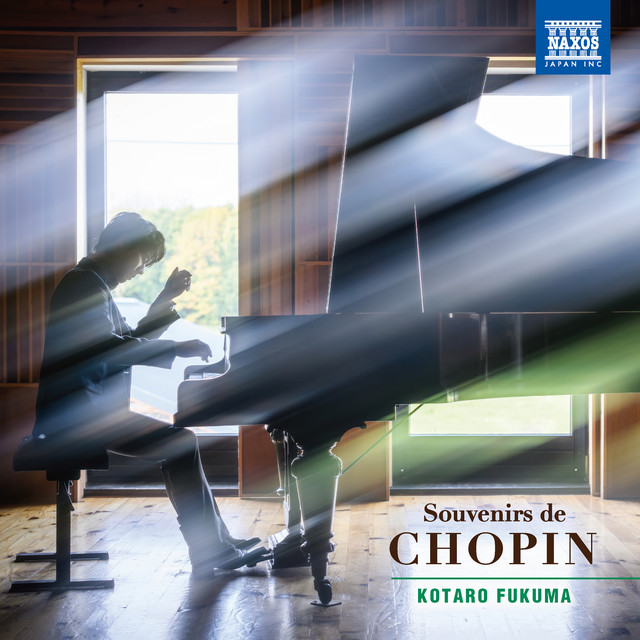Ian Bostridge, Lars Vogt – Schubert: Schwanengesang (2022)
FLAC (tracks) 24 bit/96 kHz | Time – 01:09:24 minutes | 1,21 GB | Genre: Classical
Studio Masters, Official Digital Download | Digital Booklet, Front Cover | © PentaTone
Tenor Ian Bostridge completes his Pentatone trilogy of Schubert song cycles with a rendition of Schwanengesang, performed with renowned pianist Lars Vogt. Schwanengesang was compiled and published after Schubert’s death, and the pieces literally belong to his swan songs. From the romantic “Ständchen” to the somber “Der Doppelgänger,” these songs are imbued with a deep melancholy and longing. Like Winterreise, they are best suited to mature performers, both vocally and in terms of life experience, and this recording captures Bostridge’s mature interpretation, enhanced by Vogt’s masterful playing. Swan Song is coupled with the extensive song Loneliness, which adds to the album’s bleak but ultimately comforting character.
This 2022 release of Schubert’s Schwanengesang, D. 957 (“Swan Song”), which pianist Lars Vogt did not live to see, is one of the pianist’s swan songs, and it makes a fitting memorial. This may be one of the factors that propelled the album onto classical best-seller lists in the autumn of 2022, but the album has intrinsic merits on which it can rest. Vogt delivers an exceptional performance as an accompanist in these pieces, which do not form a true song cycle (they were compiled by a published after Schubert’s untimely death), but which point to directions Schubert would have explored had he lived and in some cases look deep into the future. To an unusual degree, they emancipate the accompaniment from the melody line, and Vogt’s way of setting a whole scene with the introductions is uncanny. Sample the murky opening of Der Doppelgänger for an idea, or the famed Ständchen, which has a unique flavor here. As for the star of the show, tenor Ian Bostridge, those more comfortable with a baritone in these songs may be pleased to note a new richness in his lower register as he approaches his sixth decade, compared with the last time he recorded these songs in 2009. Otherwise, this is trademark Bostridge, with flexible lines tending toward an operatic approach, clear diction, and controlled emotion. One could argue that Vogt made an ideal foil for his style. Another draw is the presence of Einsamkeit, D. 620, a set of connected songs that shows Schubert responding directly to Beethoven’s An die ferne Geliebte, Op. 98. The real star here though, perhaps, is Vogt, and it is good to have this release to remember him. – James Manheim
Tracklist:
1-1. Ian Bostridge – No. 1, Liebesbotschaft (02:49)
1-2. Ian Bostridge – No. 2, Kriegers Ahnung (05:01)
1-3. Ian Bostridge – No. 3, Frühlings-sehnsucht (03:20)
1-4. Ian Bostridge – No. 4, Ständchen (03:34)
1-5. Ian Bostridge – No. 5, Aufenthalt (02:38)
1-6. Ian Bostridge – No. 6, In der Ferne (06:07)
1-7. Ian Bostridge – No. 7, Abschied (04:22)
1-8. Ian Bostridge – No. 8, Der Atlas (02:10)
1-9. Ian Bostridge – No. 9, Ihr Bild (02:59)
1-10. Ian Bostridge – No. 10, Das Fischermädchen (02:01)
1-11. Ian Bostridge – No. 11, Die Stadt (03:10)
1-12. Ian Bostridge – No. 12, Am Meer (04:33)
1-13. Ian Bostridge – No. 13, Der Doppelgänger (04:25)
1-14. Ian Bostridge – No. 14, Die Taubenpost (03:55)
1-15. Ian Bostridge – I. Gib mir die Fülle der Einsamkeit! (03:50)
1-16. Ian Bostridge – Ii. Gib mir die Fülle der Tätigkeit (02:22)
1-17. Ian Bostridge – Iii. Gib mir das Glück der Geselligkeit (03:11)
1-18. Ian Bostridge – Iv. Gib mir die Fülle der Seligkeit (02:44)
1-19. Ian Bostridge – V. Gib mir die Fülle der Düsterkeit (02:49)
1-20. Ian Bostridge – Vi. Gib mir die Weihe der Einsamkeit (03:14)












